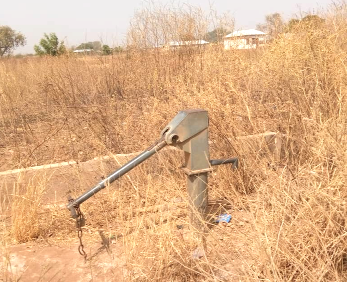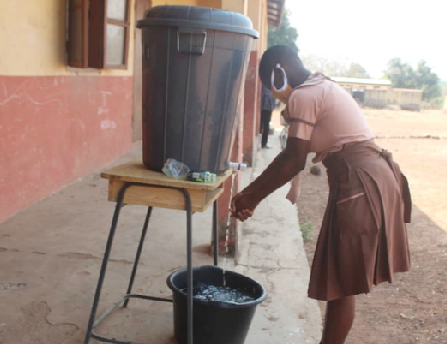
Lack of safe water affecting effective academic work — Report
A report — the Education Management Information System (EMIS), put together by a consortium of non-governmental organisations in education, says that about 58 per cent of basic schools — public and private do not have access to safe drinking water which is affecting effective teaching and learning.
Corroborating the assertion, a student of the St John Junior High School at Funsi in the Upper West Region, Kalawia Zulfatu and a student of the Sakogu Junior High School in the North East Region, Safia Adam said "We don’t have water in the school so we always trek to town to fetch water from people’s homes so that we can use it to observe safe and personal hygiene properly. As schools have resumed, it means every day we have to fetch water from town.
Advertisement
“Sometimes, when you fetch the water and return to class you will be very tired and can’t concentrate, so it is not easy and we hope the authorities will provide us with a borehole to ease our burden.”
Their schools are among the over 10,000 basic schools in the country that do not have good sources of water for drinking and for hygiene purposes.
Handwashing
Since the outbreak of COVID-19, Water, Sanitation and Hygiene (WASH) interventions have been recommended by experts across the globe as being key in the prevention of the further spread of the virus.

A student washing her hands at the Funsi Girls Model School
They have insisted that basic hygiene interventions such as handwashing with water and soap, when practiced consistently, would deactivate and remove the virus from the hands.
With the reopening of schools by President Nana Addo Dankwa Akufo-Addo, teachers and schoolchildren have been admonished to strictly adhere to the safety protocols including regular handwashing under running water to avert a possible spread of the virus.
To ensure the observance of the safety measures, the government, through the Ghana Education Service (GES), distributed handwashing facilities and other Personal Protective Equipment (PPE) to schools.
However, checks by the Daily Graphic revealed that a number of basic schools lacked access to water facilities which was hampering efforts to practice regular handwashing.
Situation
Checks by this reporter showed that while some basic schools did not have any water facility, others, which were fortunate to have borehole, had them broken down for a very long time without being attended to.
For instance, at the St John JHS and the Funsi Girls Model schools in the Upper West Region, it was observed that the only borehole serving students of both schools had broken down, compelling the students to walk to the Funsi town to fetch water for handwashing and other hygiene needs.
The Assistant Headmaster of the St John JHS, Reverend Father Ambrose Kangru, said “the water situation is really a challenge to us because we have one borehole but it had broken down because the community members also patronise it”.
“It is very difficult to practice regular handwashing because we don’t have water in the school, currently we fetch water from town and it is not easy for the students. We are pleading with authorities to help us fix it”, he added.
Interventions
Even though the minimum standards for water, sanitation and hygiene in schools have been developed with the accompanying implementation model and a costed strategy by the Ghana Education Service (GES) and its partners, there is little effort in rolling them out in all schools.
This could be attributed to the wide access gap translating to over 2.5 million schoolchildren being at risk of contracting preventable WASH-related diseases across the country, particularly in rural communities.
The Northern Regional Public Relations Officer of the GES, Mr. Donald Awaala Kanzoni, in an interview with the Daily Graphic expressed worry about the situation and said most schools in rural communities were not having access to safe drinking water.
“In fact available data shows that most of the rural schools were facing these challenges which is very worrying but I am aware a number of NGOs are collaborating with district assemblies to provide water to such schools,” he stated.
While calling on NGOs and assemblies to prioritise the provision of water to basic schools to improve on their hygiene needs, he also appealed to community members to support the schools with water to enable them to improve on their hygiene, since they owned the schools.
With the current gloomy situation, there is no guarantee that there would be the desired progress in ensuring that Ghana achieves the sustainable Development Goal 4 (SDG4) for WASH in Schools.



